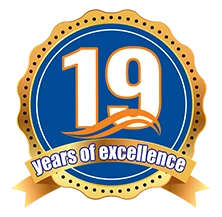What is MLIS Course Details: Full Form, Fees, Eligibility, Scope & Career
The Master of Library and Information Science (MLIS) degree is a postgraduate program designed to equip students with the knowledge and skills necessary to manage, organize, and preserve information in a range of media.
The major subjects in the degree include library science, information management, and modern digital technologies used in information storage and retrieval. The curriculum includes cataloguing, classification, digital libraries, information retrieval systems, research methodology and knowledge management. The MLIS degree incorporates IT and database administration, and digital archiving in addition to traditional library operations. MLIS graduates have a variety of job options in information science, academic, public, and special libraries.
MLIS graduates have an opportunity to work in a variety of settings, including corporate knowledge management, information centers, publishing companies, and libraries. Professionals who complete the course are well equipped to work as librarians, knowledge managers, data curators, information analysts, and archivists.
MLIS degree is a great option for people who are enthusiastic about managing information resources and meeting the constantly changing demands of knowledge-based society because it essentially bridges the gap between traditional library science and contemporary information technology.
MLIS Full Form
MLIS stands for Master of Library and Information Science. It is two years postgraduate degree in library science course that focuses on topics such as library management, information organization, and the application of information technology in libraries and information centers. Students enrolled in the MLIS program get an opportunity to learn how to gather, arrange, store, and distribute information in both digital and physical modes efficiently. The course readies professionals to operate as librarians and knowledge managers in diverse environments where controlling and facilitating access to information is crucial, such as public libraries, research organizations, educational institutions, and corporate sectors.
MLIS Course Objectives
The objectives of the Master of Library and Information Science (MLIS) program is to create professionals who can effectively manage, organize, and disseminate information in a variety of contexts. The course equips students to increase knowledge of how to organize, retrieve, and preserve information; research and analytical abilities for efficient information management; and encourage ethical and legal awareness in the use of information. Moreover, the course stresses on multiple competence in database, information systems, and digital libraries. The MLIS program enables students to become creative and competent information workers who can adjust to the dynamic global information surroundings.
MLIS Courses Highlights
The MLIS degree offers a cross-disciplinary course of study that brings together library science, information governance, and modern digital tools to deliver a forward-looking learning experience.
Along with deepening knowledge of information systems and digital libraries, the program explores cutting-edge areas like artificial intelligence and data analytics while building advanced competencies in database design, metadata development, and cataloging practices.
It also cultivates strong research capabilities, sharpens analytical thinking, and prepares students to manage, assess, and interpret information effectively.
MLIS Course Details:
The Master of Library and Information Science is a two-year post-graduate-level degree program that focuses on structured to skill students on information management within both physical and digital surroundings. The curriculum includes areas such as cataloging and classification methods, information management, managing digital library, knowledge management, and research techniques.
The program stresses on ethics in information management, data handling practices, and AI applications in library context. Students develop real world skill through applied learning opportunities, including field placements, and internship experiences at various information institutions like libraries, archival facilities, and documentation centers.
Students emerge from the MLIS program with comprehensive professional capabilities that prepare them for careers in diverse information management environments, spanning educational institutions, libraries, and business information systems. The course equips students in both theoretical foundations and practical expertise necessary for contemporary information professions.
| Full Form | Master of Library and Information Science (MLIS) |
| Course Level | Postgraduate |
| Course Duration | 1 Year (2 Semesters) |
| MLIS Eligibility | Bachelor’s Degree in any discipline with 50–60% marks from a recognized university. |
| Course Fee | INR 30,000 – 60,000 (Approx.) |
| Examination Type | Semester |
| Admission Process | Merit-based or Entrance Exam conducted by University |
| Average MLIS Salary After Degree | INR 3 – 6 LPA |
| Top Recruiting Companies | Public Libraries, Universities, Research Institutes, Government Departments, IT Firms, Corporate Archives |
Master's degree in Library and Information Science Course Duration
Master of Library and Information Science (MLIS) course is a one-year and two semester postgraduate degree program. After completing graduation, the best postgraduate degree programme for students who want to pursue careers as librarians, information officers, archivists, and knowledge managers is Master of Library and Information Science (MLIS) opening horizons in diverse settings such as public libraries, research organizations, educational institutions, and corporate sectors.
MLIS Admission Eligibility Criteria after Bachelor’s
MLIS admission eligibility requires candidates to hold a graduate degree from a recognized university with a minimum aggregate score of 50-60% marks. Candidates in their final graduation year can also apply, provided they meet eligibility requirements upon degree completion.
Masters in Library Science Course Subject and Curriculum
Core MLIS subjects include cataloging and classification, information organization, reference services, and information retrieval systems. Students study database management, metadata creation, digital libraries, and information technology applications. Essential coursework covers research methodology, ethical information management and library management, preparing graduates to organize, manage, and provide access to information effectively.
MLIS Admission Process
The admission process involves three steps
Step 1: Registering on our website
Step 2: Fill Online Application Form
Step 3: Pay Application Fee
Further details are available on the website: https://www.mangalayatan.in/blis-mlis-library-information-science-course-admission/mlis-course.php
Job opportunities and career prospects after MLIS Degree Program
Career options after completion of Master of Library and Information Science (MLIS) program are varied spanning multiple industries such as academic, public, and special libraries. Students get opportunity to serve as librarians, information managers, digital archivists, data curators, or knowledge management experts. There are also openings in government departments, foreign agencies, research institutes, and corporate entities. Students pursuing MLIS are becoming more and more in demand in the media, education, and IT industries due to the rising demand for digital information management. Additionally, the curriculum prepares students for teaching and research positions in information science.
List of Top 10 Best Private & Government MLIS Colleges in Uttar Pradesh, India
The Master of Library and Information Science degree program is offered at several reputable government and private universities in Uttar Pradesh. Top 10 colleges for this field are known for their strong academic foundations, well-equipped libraries, and experienced faculty are:
- Banaras Hindu University (BHU), Varanasi
- Aligarh Muslim University (AMU), Aligarh
- University of Lucknow
- Mahatma Gandhi Kashi Vidyapith (MGKVP), Varanasi
- Babasaheb Bhimrao Ambedkar University (BBAU), Lucknow
- Bundelkhand University, Jhansi
- Mangalayatan University, Aligarh
- Amity University, Noida
- Integral University, Lucknow
- Swami Vivekanand Subharti University (SVSU), Meerut
How to Choose the Top MLIS Librarian Degree College in Aligarh, UP, India
Librarian master's degree colleges have proliferated over the past years. Therefore, one must conduct some fundamental research before making a decision. Whether a college fosters students' overall growth in a way that makes them job-ready. Here, we'll look at the elements you should take into account when selecting a university to study MLIS.
- Affiliation
- Infrastructure
- Faculty
- Curriculum
Placements
They are certainly vital, but to reach a decision, one must categorise them according to their requirements.
Required Skill for MLIS Course
MLIS professionals must possess both soft and hard abilities to excel in their chosen profession. Among these abilities are:
- Quantitative Analysis Skills
- Computer Skills
- Investigative Skills
- The ability to operate despite the stress
- Interpersonal Competence
Why Choose Mangalayatan University for the Master's Degree in Library Science Degree Program
Mangalayatan University is the best university to pursue your Degree Program in Library and Information Science and develop a successful career in the current information world. Our MLIS course and BLIS course are a combination of both theory and practical training, with a special interest in digital library systems, information management and research skills. Mangalayatan has qualified faculty, modernised curriculum, and placement services, hence guaranteeing a holistic learning and professional growth in the Library and Information Science sector.









